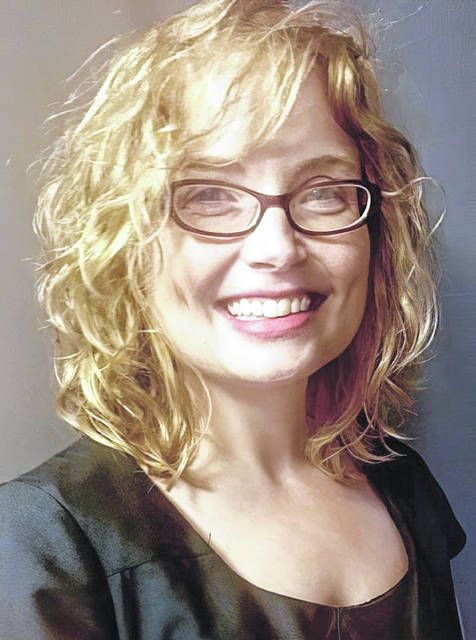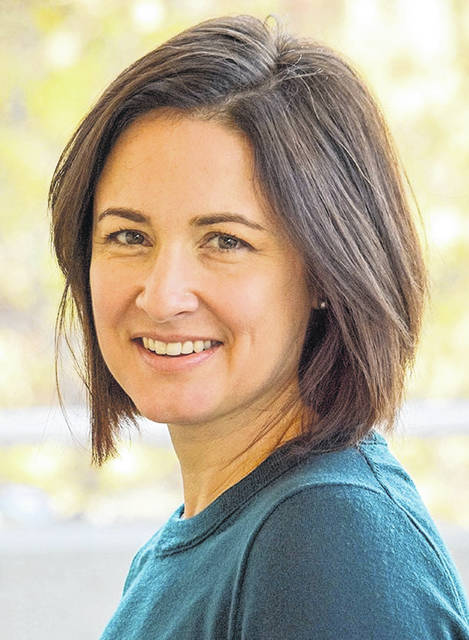

Two Ohio Wesleyan University professors examined how the COVID-19 crisis could change culture and political policies in the coming years during a virtual class on Monday.
“Reframing the Future? Policy Change and Cultural Adaptation” took the form of an hour-long panel discussion with Ohio Wesleyan’s Franchesca Nestor (political science) and Vanessa Hildebrand (anthropology).
Nestor said she is an “Americanist” in that she studies American government and public policy, applying generalities to specific situations. She said there were theories of policy change. One was they happen gradually and orderly over time as a solution to a problem, which has happened for instance with labeling products to help those with food allergies.
However, “that’s not what happens most of the time. Policy-making is not rational, and it becomes confused with politics, becoming polarized.”
Instead, “big policy change is often very sudden — it comes out of nowhere,” Nestor said. In this theory, problems, policies and politics stream together, and that policy window results in change.
She said the modern school of thought is what’s called punctuated equilibrium (a term also used in evolutionary biology), where policy change is usually status quo, but sometimes sudden. It is a combination of the two previous theories. As an example, she pointed to reforms of conditions in meat-packing plants after the book The Jungle appeared.
Nestor asked that once the coronavirus pandemic subsides, will there be a lot of sudden policy change? To answer, first we need to know if this is a public or a private problem. “Clearly, this is a public problem,” Nestor said. “That gets policy change happening.”
Another thing that can trigger policy change is when media coverage changes the public perception of a problem. She cited dramatic photographs and stories, such as Italian neighbors conversing from balconies, or the mass grave for COVID-19 victims in New York City.
Another question to consider is if it’s a persistent problem or a new problem. “If it’s a new problem, people are more willing to quickly accept large-scale policy change.” Nestor said it’s a matter of perception: COVID-19 is obviously new, but people have persistently warned about pandemics, and more broadly, climate change over the past couple decades.
When more people become interested in policy change, this increases “the scope of conflict” between what she called the status quo triangle of Congress, bureaucracy and special interest groups. “Protest is a very good way to increase the scope of conflict,” Nestor said.
On the other hand, some people will change the framing of a problem in different ways. For example, someone might call protesters hooligans, some may say the shutdown is worse than the disease itself, or others may say of marriage that love is love. Nestor said the most effective frames tend to be ones that focus on common sense.
Nestor said of the current administration’s response to the pandemic, “This is one area where I’m concerned. I don’t think we’ve done a good job making people understand what is happening, and what we should be doing. We’re sending mixed messages. I think some people have already forgotten the lessons of COVID.”
A final factor in policy change is election results. She said she didn’t know if there would be any major policy changes due to COVID-19 following the 2020 election. Nestor said she was concerned about voter suppression.
“Institutions have ways of slowing down progress that might seem inevitable,” Nestor said. “What I’m saying is vote in November.”
“I can’t give any extra credit to my students for voting, but I would if I could,” Hildebrand said.
Hildebrand asked if we were experiencing cultural change as a result of the pandemic.
“We have experienced so much disruption as a result of this pandemic, including bringing our daily life to a standstill,” Hildebrand said. “What can we expect in the future?”
Culture was defined as the system of knowledge, beliefs and patterns of behavior shared and contested by groups of people. It shapes the powers that be and its hierarchy. “Culture is dynamic and is the key factor that has allowed Homo sapiens to adapt and succeed in evolutionary terms,” Hildebrand said.
Anthropology studies humanity and human diversity in the past and present. There are four sub-disciplines: Archaeology, biological anthropology, linguistic anthropology and cultural anthropology. Hildebrand said she studies the latter, which is often paired with sociology. “The goal is to learn the native’s point of view,” she said, with the native being from different walks of life anywhere, from a hedge fund manager to a farmer.
The coronavirus pandemic is different in that many of us are more isolated, society’s functions are nearly at a full stop, and we don’t remember a similar time. “We’ve all been touched,” she said.
Hildebrand said culture is always changing, but we are currently undergoing rapid change. The change is revealing societal cracks, however.
“Enough has happened to dislodge structures,” Hildebrand said. “That’s a messy process, but humans are messy.”
Culture changes typically through discovery, innovation and borrowing. However, she felt that none of these completely explain the culture change we’re seeing from COVID-19. She suggested that surviving this pandemic has emulated the process of rituals and rites, and that as we are returning to society, there may be a societal rite of passage.
For example, many of us have a new-found respect for “essential” workers that have always been a part of our lives.
Hildebrand referenced a quote made during an earlier lecture: “We don’t want to go back to normal, we want to go back to better.” The alternative is to collapse into apathy, where what was normal is acceptable.
Going back to better requires cultural change, “and it all boils down to how we treat people in our culture and our community.” In short, she said, it requires ending societal injustices and discrimination such as racism and sexism.
“If we treat people better, we will treat the earth better, too.”
As humans, we do have societal strengths, Hildebrand said. “More often than not, we are cooperative by nature. We are diverse. We are willing to take the hard road, what is right is often not easy. We are willing to change course and deconstruct what doesn’t work. Those with privilege are the last to agree with this.”
In response to a viewer question, she urged us to be “relentlessly optimistic and think about what could be. The only way we can keep this (the pandemic) in our memory is to continue to talk about it, keep that dialogue going.”
While change may be hard, it is easier when done incrementally, Hildebrand concluded.
Course moderator Kira Bailey said this 17th virtual class began week nine of a 10-week, free online course called “We’re in This Together: An Interdisciplinary Exploration of the Coronavirus Pandemic.” Taught by 24 OWU faculty members, the course is open to students and the public alike. OWU spokespersons have said more 1,200 people are participating in the class, and more than 350 people are taking part in a Facebook COVID-19 Class Discussion Group.
For more information about OWU’s “We’re in This Together” course, visit www.owu.edu/COVIDclass.



